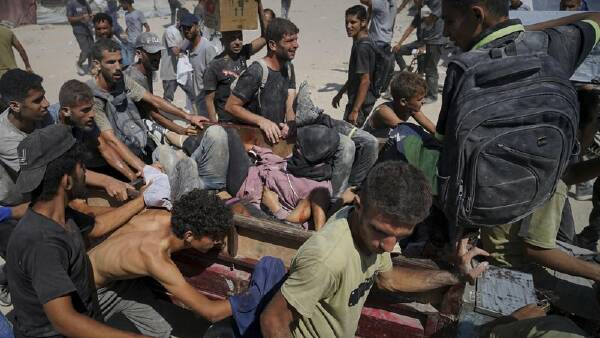
The humanitarian crisis in Gaza deepened as the local health ministry reported six additional deaths attributed to starvation and malnutrition in the past 24 hours. This grim update brings the total number of fatalities linked to what international humanitarian organizations describe as an emerging famine to at least 175, including 93 children, since the onset of the conflict on October 7, 2023.
In a rare development, two fuel trucks carrying 107 tons of diesel are reportedly set to enter Gaza, as announced by Egyptian state-affiliated Al Qahera News TV. This delivery comes after months of severe restrictions on aid access, which Israel imposed in response to the October attacks by Hamas that resulted in more than 1,200 Israeli deaths and 251 hostages taken. Gaza’s health ministry has expressed that the lack of fuel has critically hampered hospital services, compelling medical staff to prioritize only the treatment of severely ill or injured patients.
While there were no immediate confirmations regarding the arrival of the fuel trucks, the situation remains dire. Fuel shipments have become increasingly rare since March, when Israel restricted the flow of humanitarian aid and goods into Gaza, citing security concerns related to Hamas. In response to growing international pressure, Israel announced measures last week to facilitate more aid deliveries, including temporary ceasefires in specific areas, airdrops, and designated routes for humanitarian convoys.
Despite these efforts, United Nations agencies have criticized the airdrops as inadequate. They insist that Israel must allow significantly more aid to enter Gaza over land routes, as the ongoing shortages contribute to widespread starvation across the territory. The Israeli military agency COGAT reported that only 35 aid trucks have entered Gaza since June, with the majority arriving in July. In contrast, the Hamas-run Gaza government media office claimed that nearly 1,600 aid trucks have reached the enclave since restrictions were eased. However, eyewitness accounts and reports from Hamas sources indicate that many of these trucks have been intercepted by desperate individuals and armed gangs.
In January and February, during a temporary ceasefire, over 700 trucks of fuel entered Gaza, but the situation deteriorated sharply when the ceasefire ended in March. On Sunday, Palestinian health authorities reported at least 40 additional deaths from Israeli gunfire and airstrikes, with casualties including those attempting to reach aid distribution points in southern and central Gaza. Among the deceased was a staff member of the Palestinian Red Crescent Society, who died after an Israeli airstrike ignited a fire at their headquarters in Khan Younis.
The ongoing conflict has had catastrophic consequences for civilians in Gaza, with health officials reporting over 60,000 Palestinian fatalities since the war began. According to Israeli officials, 50 hostages remain in Gaza, with only 20 believed to be alive.
As the humanitarian crisis escalates, the international community continues to call for immediate and unrestricted access to aid for the people of Gaza.






